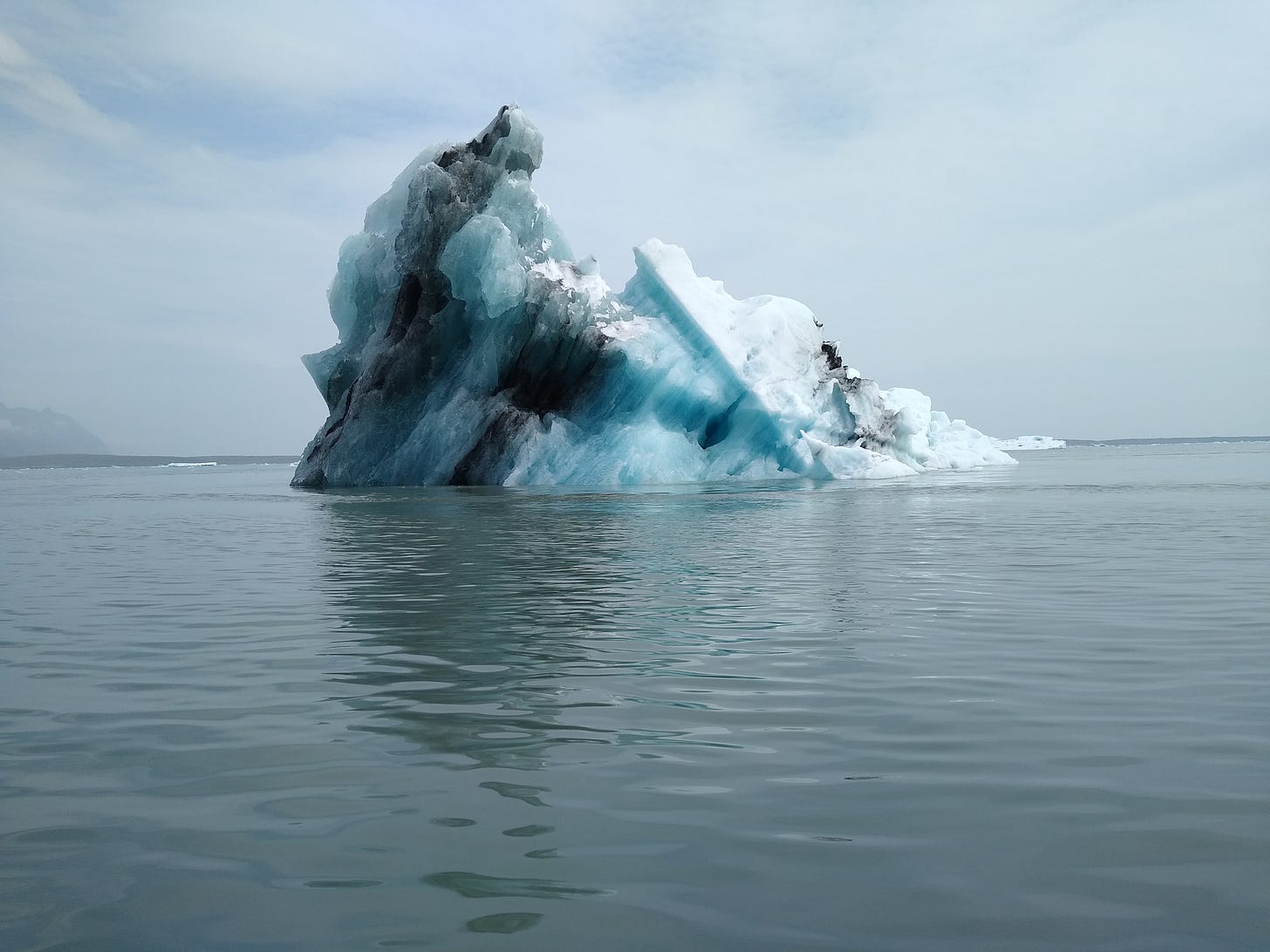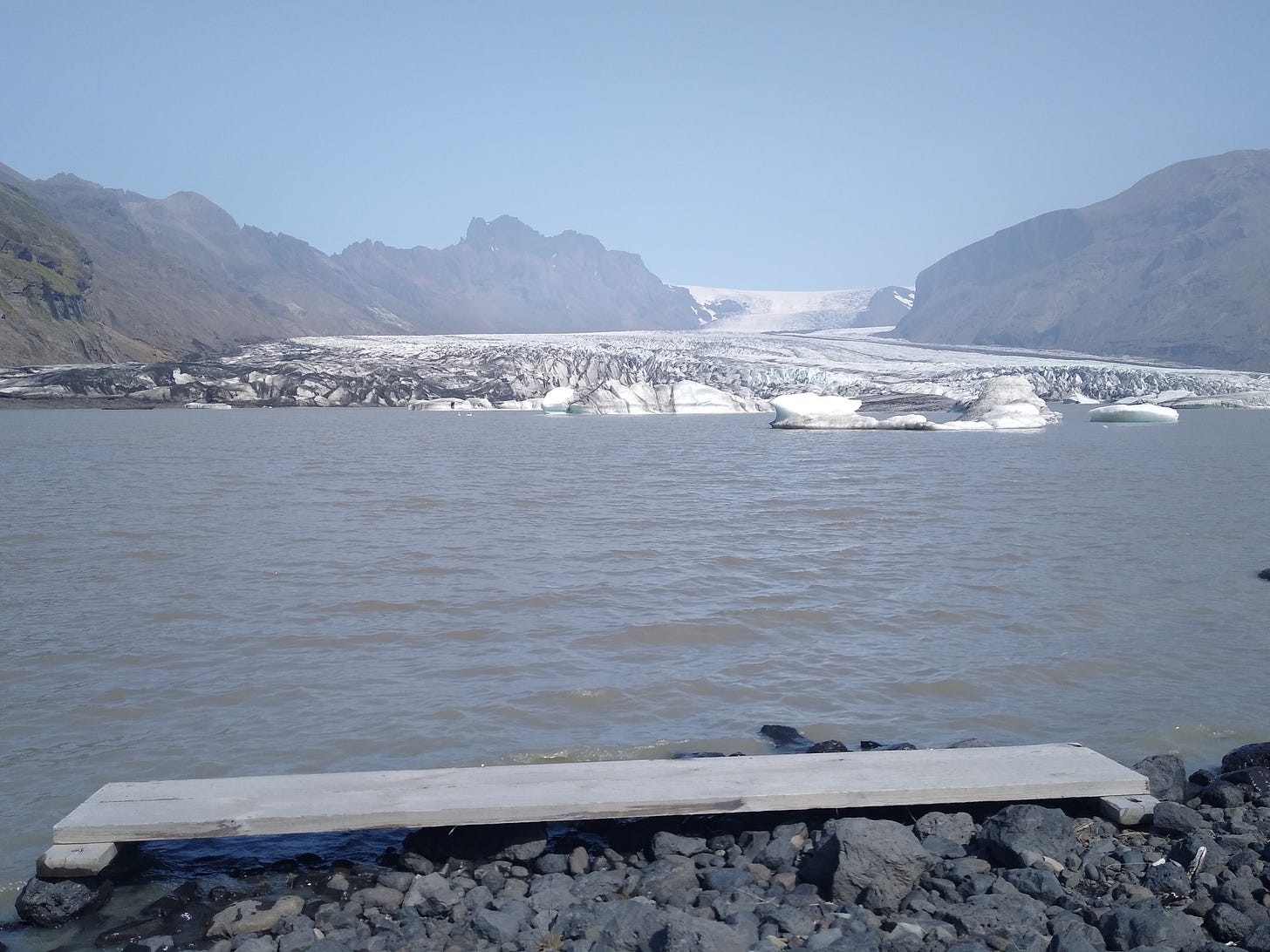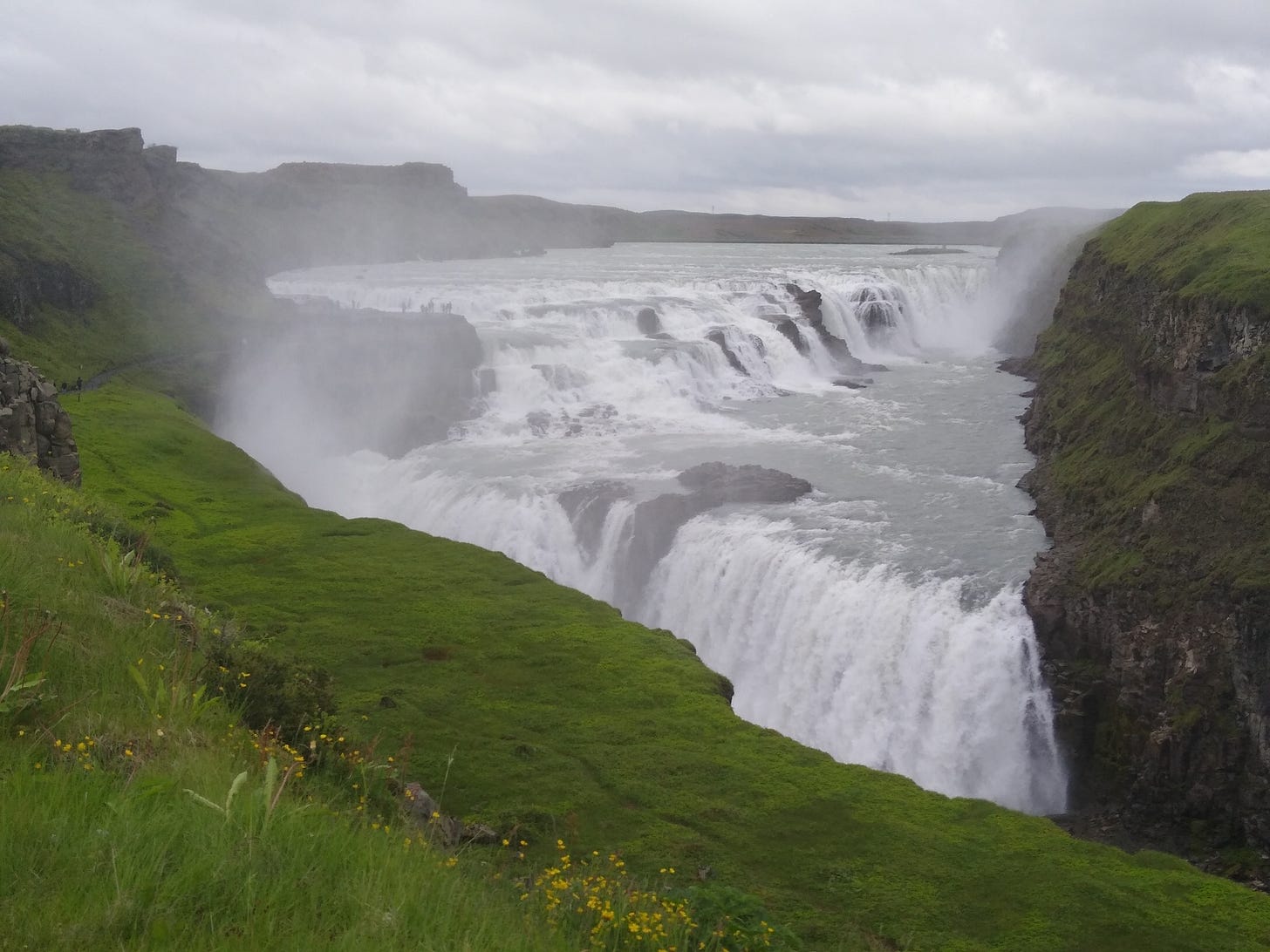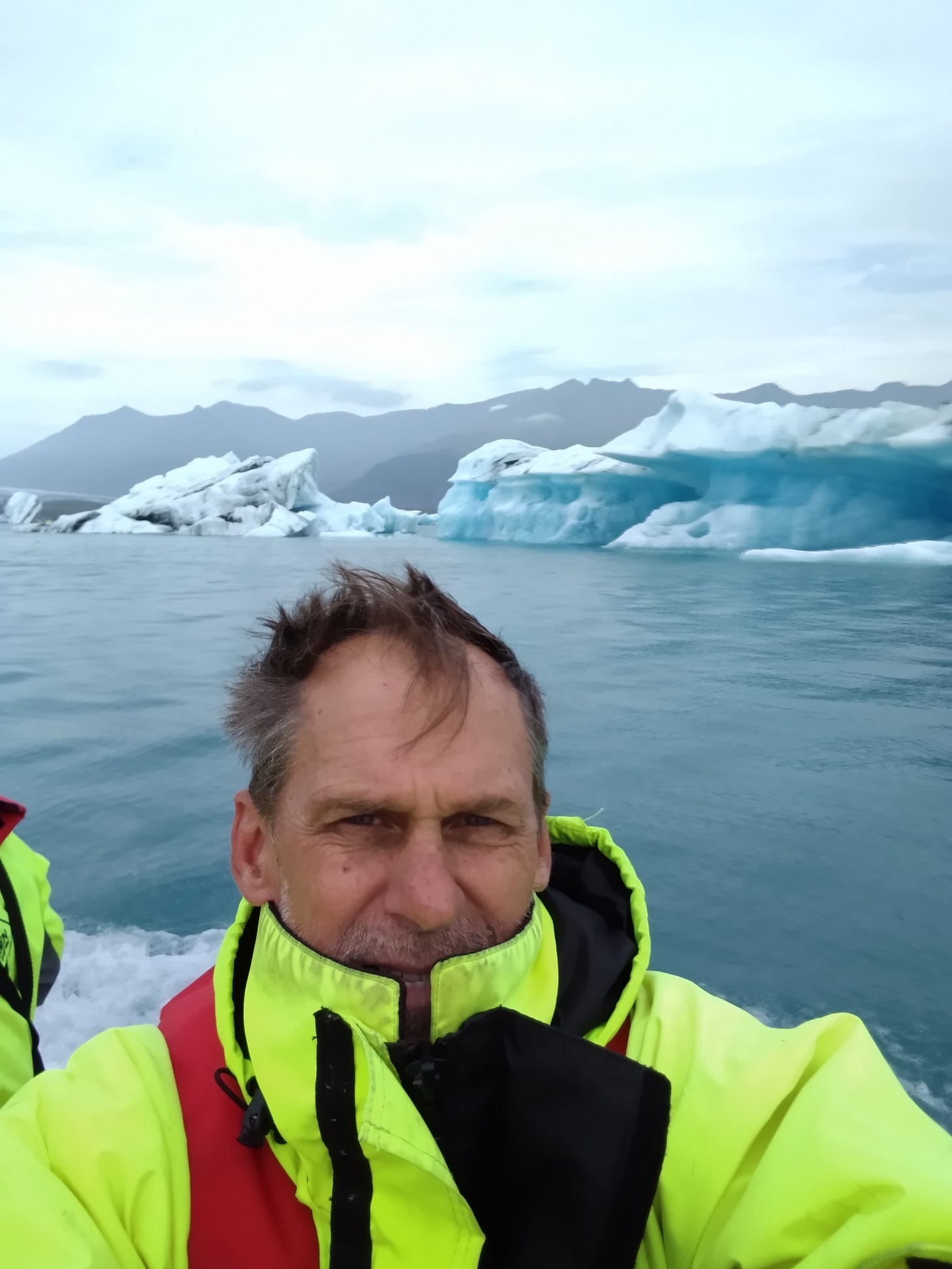Climate Change Melts Iceland's Glaciers and Its Hydropower
In July of 2021, I had the opportunity to visit Iceland and discover its wondrous glaciers, raging rivers, waterfalls, coastlines, volcanoes, and environment.
But all is not well in the “Land of Fire and Ice”. As climate change intensifies, Iceland’s famous glaciers are melting. Some of the famous glaciers along the tourist areas of southern Iceland have receded hundreds of meters leaving lakes (which they call “lagoons”) in their wake that tourist boats have to cross to reach the glaciers.
Iceland’s famous rivers and waterfalls are raging due to the melting ice, but for how long?
Currently in some places, the melting glaciers are overwhelming hydropower stations that can’t capture the electricity, but as the glaciers melt, there may eventually be no water to generate electricity. In September of 2021, Forbes Magazine wrote:
More directly relevant to infrastructure investors and anyone planning to rely longterm upon cheap, renewable electricity, the glacial melt is having significant impacts on hydropower. While geothermal power generation gets all the attention when people think of Iceland, it’s actually hydropower that provides the majority of the power. And the massive glacial melt is currently overwhelming the country’s hydrodams, so that they’re not able to fully utilize the potential power... and yet within a few decades the expectation is that the loss of glaciers will result in much LOWER levels of waterflow, threatening the available power supply. By 2200, the expectation is that all of the glaciers will be gone, and available hydropower capacity will be stuck at 1990 levels. Indeed, another study concluded that “the regression of their glaciers will render a multitude of Iceland’s hydroelectric power stations inert within the turn of the century, and decrease their total electric production by over 70%.” And of course, these projections came before today’s IPCC report and its indications of even more accelerated climate change than previously expected. (Forbes Magazine, 8/9/2011)
Iceland’s rivers rage, but Iceland is already cutting back on its use and sale of electricity as the hydropower crunch shrinks power supplies. In December of 2021, Bloomberg News Agency posted this story:
No place on the planet seems to be immune from climate change, or from the impacts of using hydropower to generate electricity. Hydropower, it turns out, has many serious negative impacts, and in a climate-changed world hydropower is also an increasingly insecure source of electricity.
From the field, here at Jokulsarlon Iceberg Lagoon, July 2021:
***end***









